🌸Describing Scents For Writers 🌸| List Of Scents
🌸Describing Scents For Writers 🌸| List of Scents
Describing aromas can add a whole new layer to your storytelling, immersing your readers in the atmosphere of your scenes. Here's a categorized list of different words to help you describe scents in your writing.
🌿 Fresh & Clean Scents
Crisp
Clean
Pure
Refreshing
Invigorating
Bright
Zesty
Airy
Dewy
Herbal
Minty
Oceanic
Morning breeze
Green grass
Rain-kissed
🌼 Floral Scents
Fragrant
Sweet
Floral
Delicate
Perfumed
Lush
Blooming
Petaled
Jasmine
Rose-scented
Lavender
Hibiscus
Gardenia
Lilac
Wildflower
🍏 Fruity Scents
Juicy
Tangy
Sweet
Citrusy
Tropical
Ripe
Pungent
Tart
Berry-like
Melon-scented
Apple-blossom
Peachy
Grape-like
Banana-esque
Citrus burst
🍂 Earthy & Woody Scents
Musky
Earthy
Woody
Grounded
Rich
Smoky
Resinous
Pine-scented
Oak-like
Cedarwood
Amber
Mossy
Soil-rich
Sandalwood
Forest floor
☕ Spicy & Warm Scents
Spiced
Warm
Cozy
Inviting
Cinnamon-like
Clove-scented
Nutmeg
Ginger
Cardamom
Coffee-infused
Chocolatey
Vanilla-sweet
Toasted
Roasted
Hearth-like
🏭 Industrial & Chemical Scents
Metallic
Oily
Chemical
Synthetic
Acrid
Pungent
Foul
Musty
Smoky
Rubber-like
Diesel-scented
Gasoline
Paint-thinner
Industrial
Sharp
🍃 Natural & Herbal Scents
Herbal
Aromatic
Earthy
Leafy
Grass-like
Sage-scented
Basil-like
Thyme-infused
Rosemary
Chamomile
Green tea
Wild mint
Eucalyptus
Cinnamon-bark
Clary sage
🎉 Unique & Uncommon Scents
Antique
Nostalgic
Ethereal
Enigmatic
Exotic
Haunted
Mysterious
Eerie
Poignant
Dreamlike
Surreal
Enveloping
Mesmerizing
Captivating
Transcendent
I hope this list can help you with your writing. 🌷✨
Feel free to share your favorite scent descriptions in the replies below! What scents do you love to incorporate into your stories?
Happy Writing! - Rin T.
More Posts from Nefaralous and Others
I have an idea for a short story about a girl who is taken by the Fae, sort of like a changeling situation. She eventually gets back to her realm, but discovers that much more time has passed than she thought while she was with the Fae.
I have some areas of the story planned out, but I’m trying to figure out how to end it 🤔💭
Honestly? My main piece of advice for writing well-rounded characters is to make them a little bit lame. No real living person is 100% cool and suave 100% of the time. Everyone's a little awkward sometimes, or gets too excited about something goofy, or has a silly fear, or laughs about stupid things. Being a bit of a loser is an incurable part of the human condition. Utilize that in your writing.
I am a sensitive person.
I feel things deeply, even if it doesn’t always show. I learned to downplay my emotions, to water myself down in an attempt to be more palatable.
Because when enough people tell you that being sensitive in a bad thing, you start believing them.
-a work in progress I’m posting.
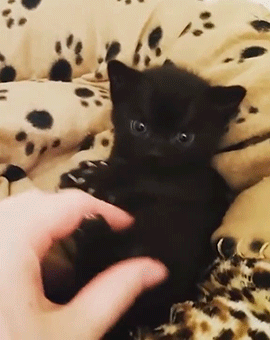
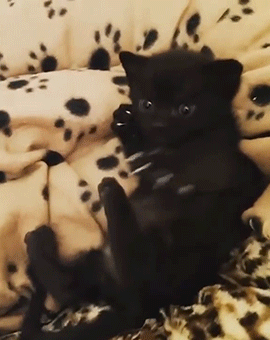
♡
Body language cheat sheet for writers
As a writer, understanding and incorporating body language into your storytelling can greatly enhance your characters and their interactions. Here's a cheat sheet to help you describe body language effectively:
Facial Expressions:
* Raised eyebrows: Surprise, disbelief, or curiosity.
* Furrowed brow: Concentration, confusion, or frustration.
* Smiling: Happiness, amusement, or friendliness.
* Frowning: Disapproval, sadness, or concern.
* Lip biting: Nervousness, anticipation, or tension.
Eye Movements:
* Eye contact: Confidence, interest, or honesty.
* Avoiding eye contact: Shyness, guilt, or deception.
* Narrowed eyes: Suspicion, skepticism, or concentration.
* Wide eyes: Shock, fear, or surprise.
* Rolling eyes: Exasperation, annoyance, or disbelief.
Gestures:
* Crossing arms: Defensiveness, disagreement, or discomfort.
* Nervous fidgeting: Anxiety, restlessness, or impatience.
* Pointing: Assertiveness, emphasis, or accusation.
* Open palms: Honesty, openness, or sincerity.
* Hand on chin: Deep thought, contemplation, or evaluation.
Posture and Movement:
* Slumped shoulders: Defeat, sadness, or fatigue.
* Upright posture: Confidence, attentiveness, or authority.
* Pacing: Restlessness, agitation, or contemplation.
* Tapping foot: Impatience, annoyance, or frustration.
* Leaning in: Interest, engagement, or curiosity.
Touch:
* Hugging: Affection, comfort, or warmth.
* Handshake: Greeting, introduction, or agreement.
* Patting on the back: Encouragement, praise, or camaraderie.
* Clenched fists: Anger, determination, or frustration.
* Brushing hair behind the ear: Nervousness, coyness, or flirtation.
Mirroring:
* When two characters unconsciously mimic each other's body language, it indicates rapport, connection, or empathy.
Nodding:
* A subtle nod can convey agreement, understanding, or encouragement.
Crossed legs:
* Crossed legs can indicate relaxation or a casual, nonchalant attitude.
Tapping fingers:
* Impatience, anticipation, or nervousness can be expressed through rhythmic finger tapping.
Hand on the chest:
* Placing a hand on the chest can convey sincerity, empathy, or a heartfelt emotion.
- Tilting the head:
* Tilting the head to the side can suggest curiosity, attentiveness, or interest.
Rubbing the temples:
* Rubbing the temples can indicate stress, fatigue, or a headache.
Chin stroking:
* Stroking the chin while in thought can portray contemplation, decision-making, or intellectual curiosity.
Arms crossed behind the back:
* This posture can indicate authority, confidence, or a composed demeanor.
Tilted body posture:
* Leaning slightly towards someone can suggest interest, attraction, or engagement in a conversation.
Biting nails:
* Nail-biting can reveal anxiety, nervousness, or tension.
Foot tapping:
* Rapid or impatient foot tapping can show agitation, restlessness, or eagerness.
Squinting:
* Squinting the eyes can signal suspicion, doubt, or an attempt to focus on something.
Shifting weight from foot to foot:
* Shifting weight can imply discomfort, unease, or anticipation.
Covering the mouth while speaking:
* This gesture can indicate hesitation, embarrassment, or the desire to hide something.
Remember that body language can vary across different cultures and individuals, so consider your character's background and personality while describing their movements. Additionally, body language is best used in combination with dialogue and internal thoughts to create a more nuanced portrayal of your characters.
Happy writing!
ah yes, one of the signs of homosexuality: an acute obsession with horror films
Quick Tips for Writing Emotional Tension
They act like they don’t care, but we all know they’re just avoiding a massive emotional explosion.
One of them starts to spill their feelings, then clams up like, “Uh, never mind…” Cue the frustration.
One character throws out something super personal like it’s no big deal, but you can tell the other one’s like, “Wait, what?”
They let something slip that they were totally not ready to share, and then they freeze like, “Did I just say that?”
The “I’m fine” smile (but they’re not). One gives this shaky smile that doesn’t fool anyone, especially the other character.
They almost grab each other’s hand or hug, then they hesitate, and the moment passes. UGH, so frustrating!
One of them’s on the verge of tears but is trying sooo hard not to lose it. You can feel how much it hurts.
They talk about literally everything except the thing that’s actually bothering them. So. Annoying.
They used to be shoulder to shoulder, but now they’re standing a whole three feet apart like something big changed.
One’s suddenly acting like they barely know the other, being all polite and formal, and you just know there’s more going on.
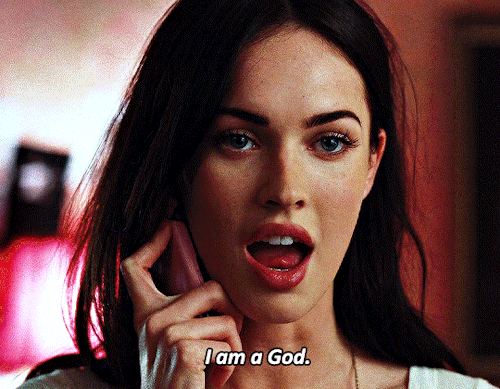
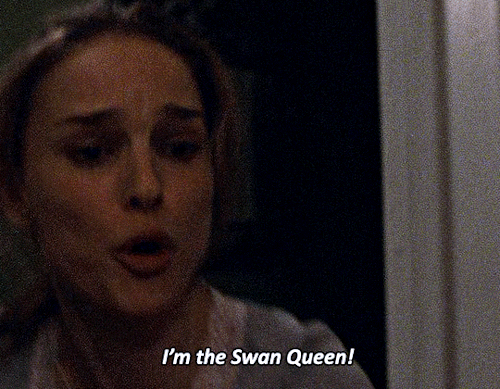




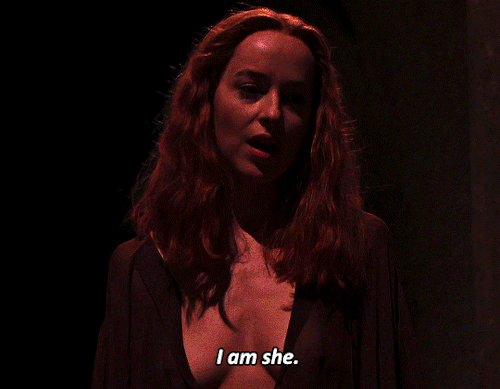
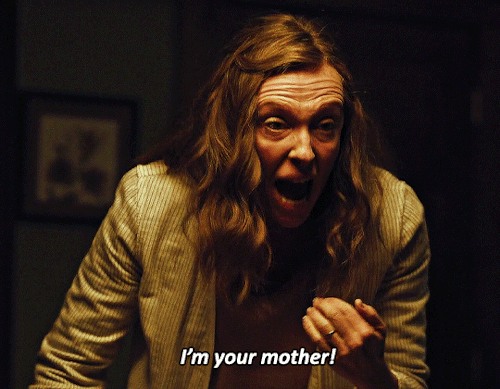

Jennifer’s Body (2009) Black Swan (2010) Gone Girl (2014) The Witch (2014) The Neon Demon (2016) The Love Witch (2016) Suspiria (2018) Hereditary (2018) X (2022)
Character Flaws
When creating characters, it's all too easy to envision the most perfect people, especially when it comes to creating love interests. Even our loveable morally grey characters are mostly perfect, if only they would stop killing...
So, here are a list of some flaws (based on personality, not appearance) to help round out your characters. While it's nice to be good at everything, it's abnormal. No one is perfect, and your characters will be much more relatable if you knock them down a bit.
Please note, none of these are (specifically) mental disorders, as I don't consider those a character flaw.
The Good (aka little flaw):
Absent-minded, aimless, argumentative, audacious, awkward, blunt, bold, boring, capricious, childish, clumsy, competitive, complainer, cowardly, critical directionally-challenged, dubious, finicky, fixated, flake, flirty, foolish, gossipy, gruff, gullible, hedonistic, humourless, hypocritical, idealist, idiotic, ignorant, illiterate, immature, impatient, impetuous, impulsive, incompetent, inconsiderate, indecisive, indifferent, indomitable, irrational, lazy, lustful, materialistic, meddlesome, meek, mischievious, nagging, naive, nervous, nosey, obnoxious, overambitious, overconfident, overemotional, overprotective, overzealous, passive-aggressive, paranoid, peevish, perfectionist, pessimist, pest, predicatable, pretencious, prideful, rebellious, renege, rigorous, sarcastic, skeptic, seducer, selfish, self-righteous, shallow, slacker, solemn, spacey, spoild, squeamish, stubborn, supersticious, sycophant, tactless, tease, tempermental, tenacious, theatrical, thoughtless, timid, unpredictable, unsupportive, vain, workaholic
The Bad (aka big flaw):
Addiction, adulterous, aloof, anxious, apathetic, arrogant, belittling, belligerent, bigmouth, bitter, bully, callous, deceptive, dependant, deranged, dishonest, disloyal, disrespectful, egotistical, envious, erratic, exploitive, fanatical, fickle, fierce (at the extreme), gluttonous, greedy, harasser, hubris, impious, infamy, intolerant, judgemental, lewd, liar, meglomaniac, morally grey, narcissistic, negligent, obsequious, obsessive, offensive, prejudiced, quixotic, reckless, rigid, self-martyr, self-righteous, short-tempered, spiteful, squanderer, stingy, unethical, unforgiving, untrustworthy
The Ugly (aka cross the street when you see this person):
Abusive, bigot, controlling, cruel, explosive, immoral, inhumane, intolerant, machiavellian, manipulative, murderous, neglectful, oppressive, racist, remorseless, possessive, self-destructive, threatening, treacherous, vengeful, vindictive, violent
The seven chief features of ego: self-deprecation, self-destruction, martyrdom, stubbornness, greed, arrogance and impatience.
Some of these may not even be considered flaws, and some may jump from one category to the next. It's all about how you present these flaws in your characters.
Have any more to add? Did you find this useful? Let me know down in the comments :)
Good Traits Gone Bad
Empathy turning into manipulation
Imagine a character who is deeply empathetic, someone who genuinely feels and understands the emotions of others. At first, this makes them incredibly compassionate and kind, always there to lend an ear or offer comfort. But over time, this empathy begins to shift. Instead of just understanding how others feel, they start to use that understanding to manipulate those around them. They know exactly what to say to get people to do what they want, twisting their caring nature into a tool for control. What once was a beautiful gift becomes a weapon, used to bend others to their will without them even realizing it.
Confidence becoming arrogance
Think of someone who exudes confidence—someone who knows their worth and isn’t afraid to go after what they want. This kind of self-assuredness is magnetic and inspiring, drawing people in. But sometimes, this confidence can grow into something darker. The character starts to believe they’re always right, that their way is the best and only way. They dismiss others’ ideas and opinions, thinking they know better than everyone else. What was once a healthy self-esteem turns into arrogance, pushing people away as they start to feel belittled and unappreciated.
Ambition turning into obsession
Picture a character who is ambitious and driven, always striving for the next big achievement. Their dedication is admirable, pushing them to work hard and aim high. But ambition can have a dark side, too. Slowly, their drive becomes an obsession. They start to focus solely on their goals, willing to sacrifice anything or anyone who stands in their way. Friends, family, and even their own health fall by the wayside as they chase success at any cost. What was once an admirable quality turns destructive, consuming them completely.
Loyalty becoming blind devotion
Loyalty is such a beautiful trait. A loyal character is dependable, someone who stands by the people they care about no matter what. But loyalty can also become dangerous if it goes too far. This character might start to overlook red flags or harmful behaviors, sticking by someone or something even when it’s clearly detrimental. They become so blindly devoted that they lose sight of their own well-being and moral compass. What starts as a positive trait turns into a kind of self-destructive stubbornness, harming them more than helping.
Courage turning into recklessness
Imagine someone who’s incredibly brave, always ready to face challenges head-on and stand up for what they believe in. At first, this courage is inspiring, giving them the strength to overcome obstacles and help others. But sometimes, courage can cross a line. It turns into recklessness, making them take unnecessary risks without considering the consequences. They start to believe they’re invincible, putting themselves and others in danger because they’re too focused on proving their bravery. What was once a powerful strength becomes a dangerous flaw.
Determination becoming stubbornness
There’s something admirable about a character who never gives up, no matter how tough things get. Their determination helps them push through difficulties and keep going when others might quit. But when that determination turns into stubbornness, it’s a different story. They refuse to change their minds, even when all the signs point to a different path. They ignore advice, dismiss alternative viewpoints, and stick to their course out of sheer willpower, even when it’s clearly not working. Their once-praiseworthy persistence becomes a source of frustration for those around them.
Optimism becoming naivety
Someone who always looks on the bright side, no matter what. Their optimism is contagious, lifting the spirits of those around them and helping them see the silver lining in every situation. But if they aren’t careful, this optimism can morph into naivety. They might start ignoring real dangers or fail to recognize when they’re being taken advantage of. Their rosy outlook makes them blind to harsh realities, and they become easily deceived or led astray, all because they’re so focused on seeing the good in everything and everyone.
Protectiveness turning into possessiveness
A character who is naturally protective of their loved ones, always looking out for them and ensuring they’re safe and happy. This protectiveness is heartwarming and makes those around them feel cherished. But when protectiveness goes too far, it can become possessiveness. The character starts to feel like they own the people they care about, becoming overly controlling and jealous. They start dictating others' actions, justifying it as care, but it’s really about their need to keep everything under their control. What started as a caring instinct turns into something suffocating and unhealthy.
Altruism becoming self-neglect
Think about a character who is incredibly selfless, always putting others' needs before their own. They’re the kind of person who would give you the shirt off their back, always ready to help, always there for everyone. But this selflessness can go too far. It turns into self-neglect, where they completely disregard their own needs and well-being. They keep giving and giving until they have nothing left, leading to burnout and exhaustion. Their altruism, while beautiful, ends up harming them because they don’t know how to set boundaries or take care of themselves.
Honesty becoming brutal bluntness
There’s a lot to be said for a character who is straightforward and honest, someone who tells it like it is and doesn’t sugarcoat the truth. People appreciate their transparency and trustworthiness. But when honesty turns into brutal bluntness, it’s no longer a positive trait. This character starts to disregard others' feelings, using their honesty as an excuse to be harsh and tactless. Their words cut deep, hurting those around them, all in the name of being truthful. What was once refreshing candor becomes a source of pain, as they lose sight of the importance of kindness in communication.
-
 tree-galaxy liked this · 1 week ago
tree-galaxy liked this · 1 week ago -
 immortaltyrant2 reblogged this · 1 week ago
immortaltyrant2 reblogged this · 1 week ago -
 rustinpiss liked this · 1 week ago
rustinpiss liked this · 1 week ago -
 teenagetreeherringparty liked this · 1 week ago
teenagetreeherringparty liked this · 1 week ago -
 lunerenzo liked this · 1 week ago
lunerenzo liked this · 1 week ago -
 nutal liked this · 2 weeks ago
nutal liked this · 2 weeks ago -
 vire-vire liked this · 2 weeks ago
vire-vire liked this · 2 weeks ago -
 mediocretosubpar-soup reblogged this · 2 weeks ago
mediocretosubpar-soup reblogged this · 2 weeks ago -
 echo-16 reblogged this · 2 weeks ago
echo-16 reblogged this · 2 weeks ago -
 ray-of-destiny reblogged this · 2 weeks ago
ray-of-destiny reblogged this · 2 weeks ago -
 ray-of-destiny liked this · 2 weeks ago
ray-of-destiny liked this · 2 weeks ago -
 llamaflower reblogged this · 2 weeks ago
llamaflower reblogged this · 2 weeks ago -
 llamaflower liked this · 2 weeks ago
llamaflower liked this · 2 weeks ago -
 autum328 liked this · 2 weeks ago
autum328 liked this · 2 weeks ago -
 iwastemytimereading liked this · 2 weeks ago
iwastemytimereading liked this · 2 weeks ago -
 lynns-writing-and-art-tips reblogged this · 2 weeks ago
lynns-writing-and-art-tips reblogged this · 2 weeks ago -
 swannerina liked this · 2 weeks ago
swannerina liked this · 2 weeks ago -
 ao3feed-multifandom reblogged this · 2 weeks ago
ao3feed-multifandom reblogged this · 2 weeks ago -
 despirte liked this · 2 weeks ago
despirte liked this · 2 weeks ago -
 helki-kome liked this · 2 weeks ago
helki-kome liked this · 2 weeks ago -
 princessjasminefan32 liked this · 2 weeks ago
princessjasminefan32 liked this · 2 weeks ago -
 corallove liked this · 2 weeks ago
corallove liked this · 2 weeks ago -
 its5amgotosleep reblogged this · 2 weeks ago
its5amgotosleep reblogged this · 2 weeks ago -
 its5amgotosleep liked this · 2 weeks ago
its5amgotosleep liked this · 2 weeks ago -
 acethespace liked this · 2 weeks ago
acethespace liked this · 2 weeks ago -
 frey-bea liked this · 2 weeks ago
frey-bea liked this · 2 weeks ago -
 sweater-unicorn liked this · 2 weeks ago
sweater-unicorn liked this · 2 weeks ago -
 astrumidolons liked this · 2 weeks ago
astrumidolons liked this · 2 weeks ago -
 simplytemonade reblogged this · 2 weeks ago
simplytemonade reblogged this · 2 weeks ago -
 thebitterword liked this · 2 weeks ago
thebitterword liked this · 2 weeks ago -
 lunaluvsu4eva liked this · 2 weeks ago
lunaluvsu4eva liked this · 2 weeks ago -
 unnpopularpoop-blog liked this · 2 weeks ago
unnpopularpoop-blog liked this · 2 weeks ago -
 quoinie liked this · 2 weeks ago
quoinie liked this · 2 weeks ago -
 krispycowboytyphoon liked this · 2 weeks ago
krispycowboytyphoon liked this · 2 weeks ago -
 frostedlittlecupcake liked this · 2 weeks ago
frostedlittlecupcake liked this · 2 weeks ago -
 8naveah liked this · 3 weeks ago
8naveah liked this · 3 weeks ago -
 chaoticmessybitch liked this · 3 weeks ago
chaoticmessybitch liked this · 3 weeks ago -
 luxaii liked this · 3 weeks ago
luxaii liked this · 3 weeks ago -
 redlantern01 liked this · 3 weeks ago
redlantern01 liked this · 3 weeks ago -
 curiouswisp liked this · 3 weeks ago
curiouswisp liked this · 3 weeks ago -
 honestlyperfecthideout liked this · 3 weeks ago
honestlyperfecthideout liked this · 3 weeks ago -
 lucyid8 liked this · 3 weeks ago
lucyid8 liked this · 3 weeks ago -
 local-kryptid liked this · 3 weeks ago
local-kryptid liked this · 3 weeks ago -
 lordofshades liked this · 3 weeks ago
lordofshades liked this · 3 weeks ago -
 alternative-inner-world liked this · 3 weeks ago
alternative-inner-world liked this · 3 weeks ago -
 jinx-lucy liked this · 3 weeks ago
jinx-lucy liked this · 3 weeks ago -
 aaustinwrites reblogged this · 3 weeks ago
aaustinwrites reblogged this · 3 weeks ago
